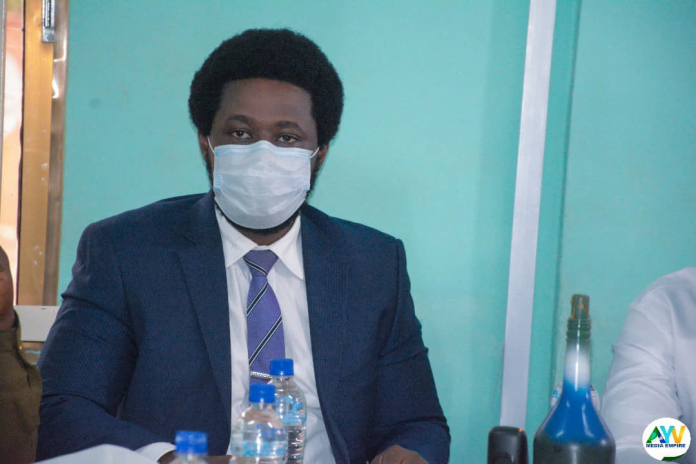By Amin Kef Sesay
It goes without argument that in improving the effectiveness of the public sector through the quality of public administration, the State since the 1970s has not proved itself too capable – hence the gradual lapse into poverty and all its social ills. This is because the role of the State in proving the conducive atmosphere for rapid socio-economic development has not been too robust and sustained.
After the war ended in 2002, a paradigm shift and a rediscovery of the importance of the State in the development process and the need for a more capable public sector occurred.
Indeed, the relevance of the State or the public sector to socio-economic development cannot be underestimated. The 1997 World Development Report argued that an effective State is vital for the provision of the goods and services – and the rules and institutions – that allow markets to flourish and the people to lead healthier, happier lives. Without it, sustainable development, both economic and social, is impossible.
The basic function of the public sector therefore is to provide goods and services to citizens based on the realization and representation of public interests and its possession of unique public qualities compared to business management.
However, the public sector has not been able to perform its function effectively because of its accumulation of excessive power, lack of accountability and representation, indifference towards public needs and demands, official secrecy and inaccessibility and role in depoliticizing the public sphere. This ineffectiveness coupled with the war, Ebola and now Corona combine to redefine the role of the State or public sector in effective service delivery that benefits the people.
In this direction, the indefatigable Commissioner of the Anti-Corruption Commission, Francis Ben Kaifala, deserves thanks and praise from the entire nation for the invaluable work that the Commission under his watch is doing to not only prevent, detect and prosecute cases of grand corruption but also for making corruption in public life a highly risky business.
That notwithstanding, the Commission still faces an uphill task in bringing the menace under full control, going by the dismal statistics of blatant theft and misuse of public funds running into tens of billions of Leones by MDAs for financial years 2018 and 2019.
To plug the gaping loopholes through which huge sums of public funds are siphoned by the MDAs, the ACC Commissioner has move one-step further based on the philosophy of prevention is better than cure by launching the “Compliance, Sanction Management and Enforcement Procedure Handbook for MDAs”.
Working on the principle that if compliance is effective, there would be little prosecution and other actions, the ACC boss hit the nail on the head when he noted; “Make no mistake; we will not succeed in the fight against corruption if the bureaucratic establishment resists the fight against corruption”.
Significantly, at the ceremony marking the launching of the manual, Idrissa Tamba Bindi, from the Open Society Initiative for West Africa (OSIWA) that funded the manual, said that after 60 years of independence, Sierra Leone still lags behind other countries in climbing up the development ladder, noting that countries like Malaysia and Singapore who attained independence like us in the early 1960s have very strong economies even though they are not endowed with mineral resources. Our minus, he said, has been rampant corruption.
According to the representative of the Secretary to Cabinet and Head of the Civil Service, the ACC Compliance, Sanction, Management and Enforcement manual falls within the vision of having a transparent and accountable public service, inclusive of the civil service with the highest standard of professionalism that is capable of efficiently and effectively delivering services to improve people’s lives.





This is a very important and historical change in reputation management. Our reputation as a country was badly affected by the act of improper practices in the public sector. And it requires government to step up irrespective of political gains or population gains in vote counts. Year in year out MDAs continue to show up to be mismanaging public funds as audit reports comes out. Sometimes, I often think of it as organisational behavioural system affecting all cradles of the public sector thereby making them to behave any how. In this regard, I want to thank my president, your president, our president H.E Julius Maada Bio for his leadership showed to the people of Sierra Leone that indeed he is the one that is going to lead in the fight to make our future bright. Leaders like Seretse Khama of Botswana lifted his country from second poorest in Africa to where it is today. This was done through many reforms. China was a third world country, but today who dare to say it is any more. The ACC czar is effective and efficiently working and making Sierra Leone an enviable country against the fight against corruption in modern times. I want to thank him and may God continue to give him wisdom. Amen.